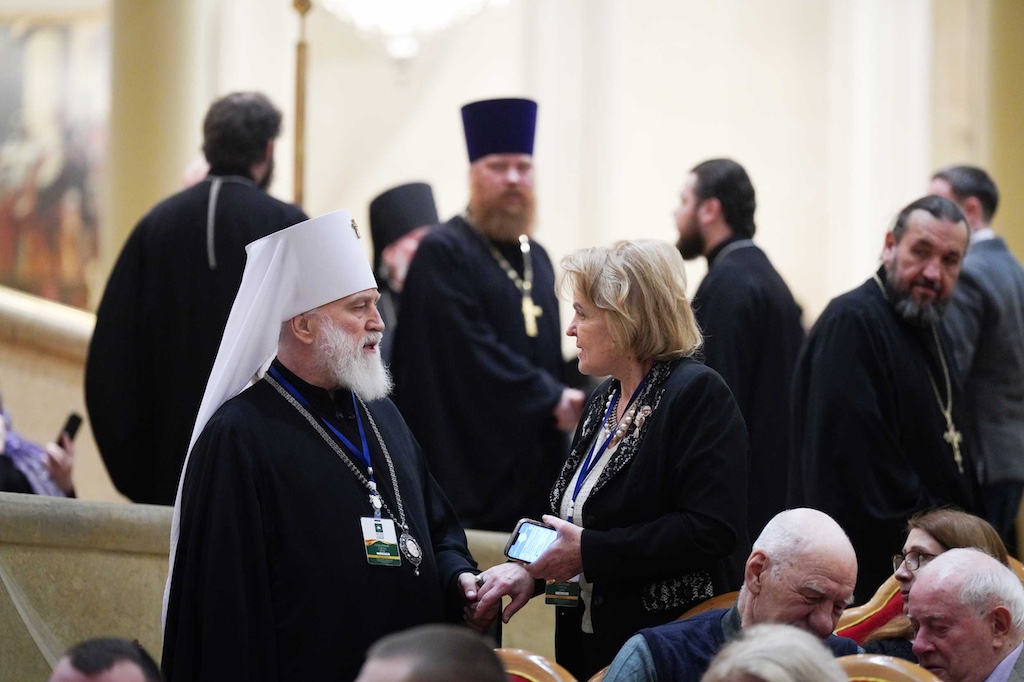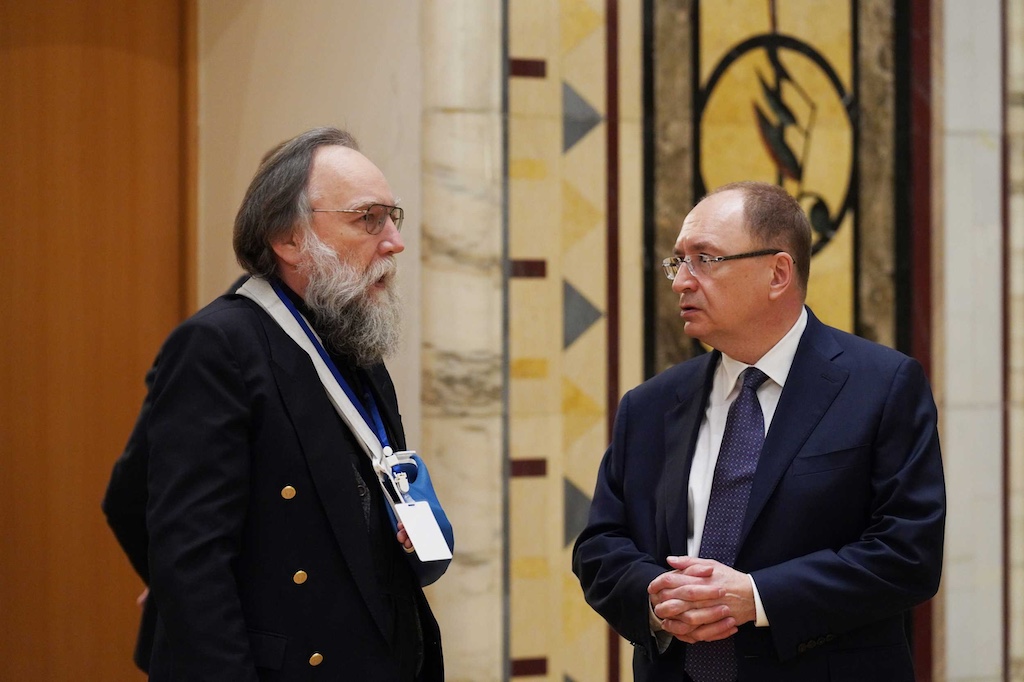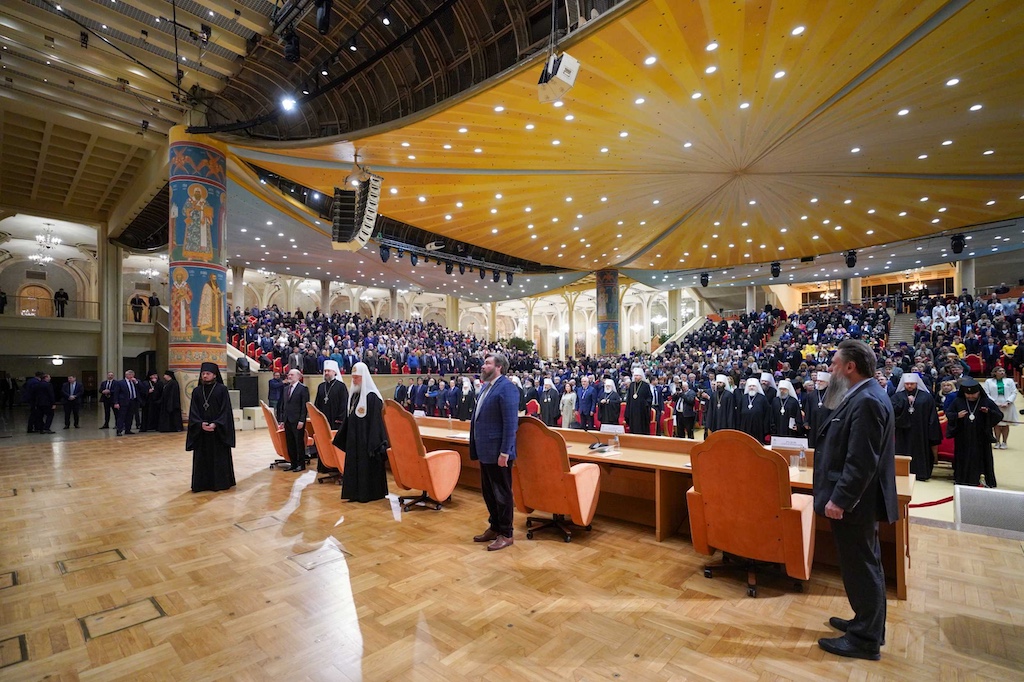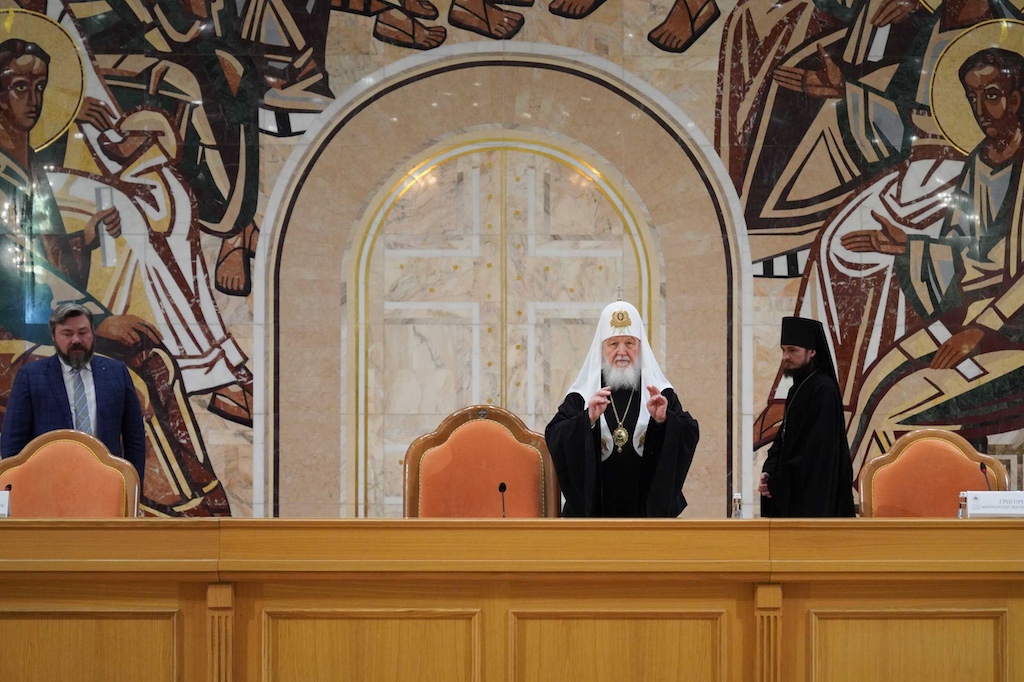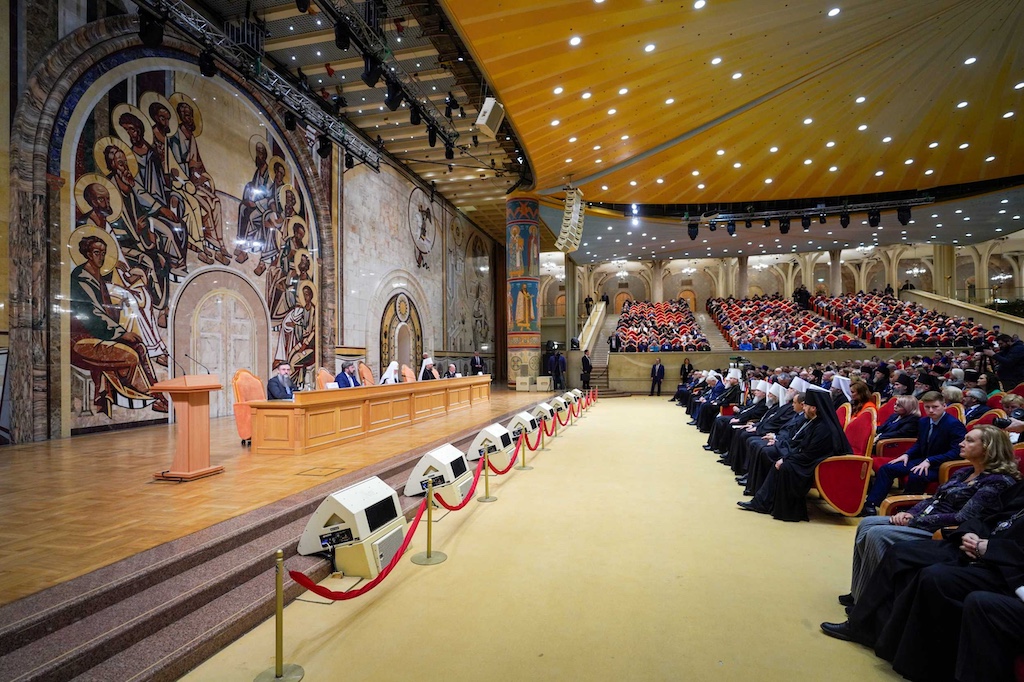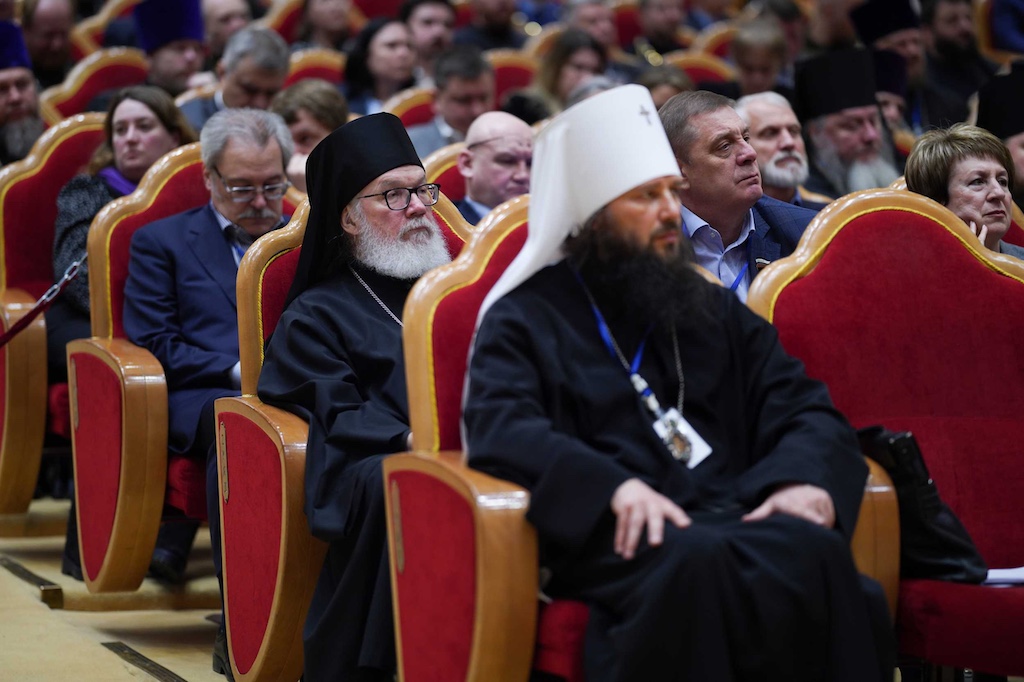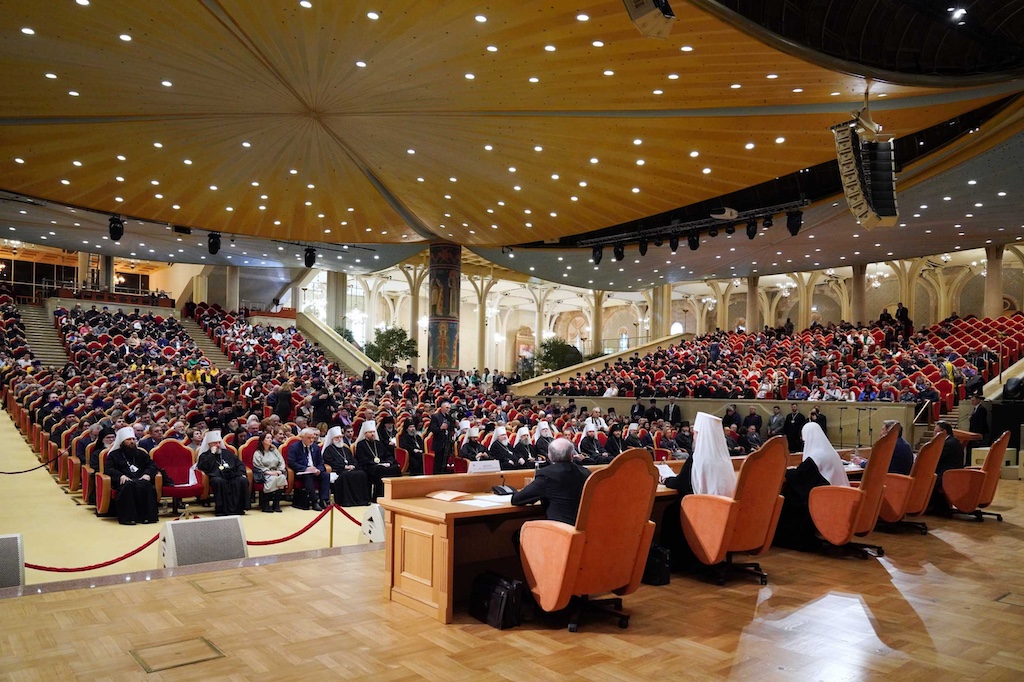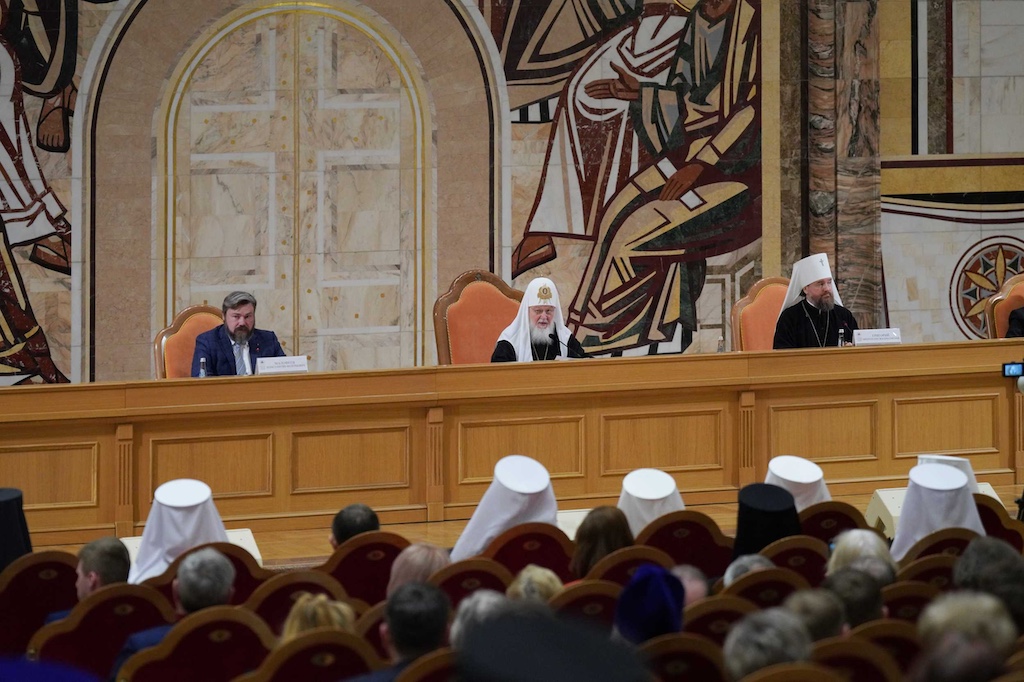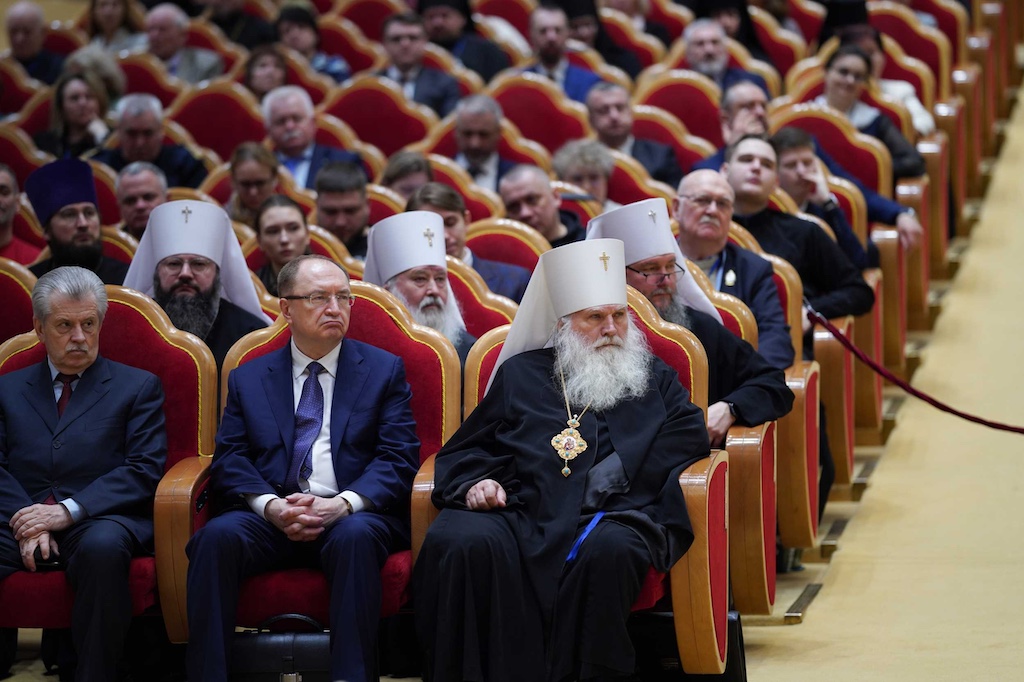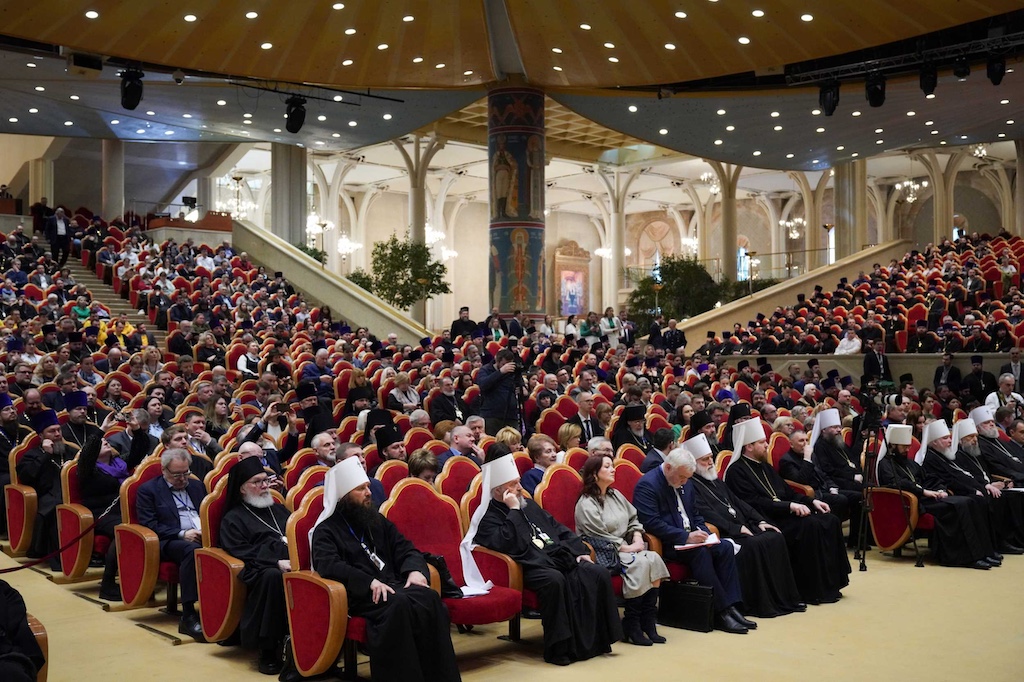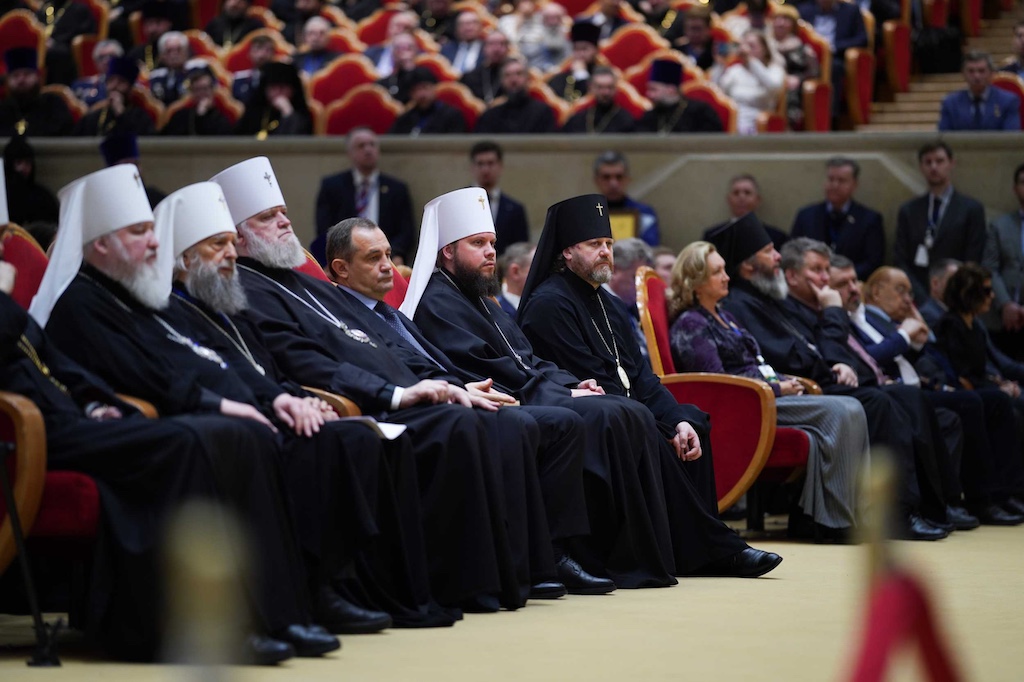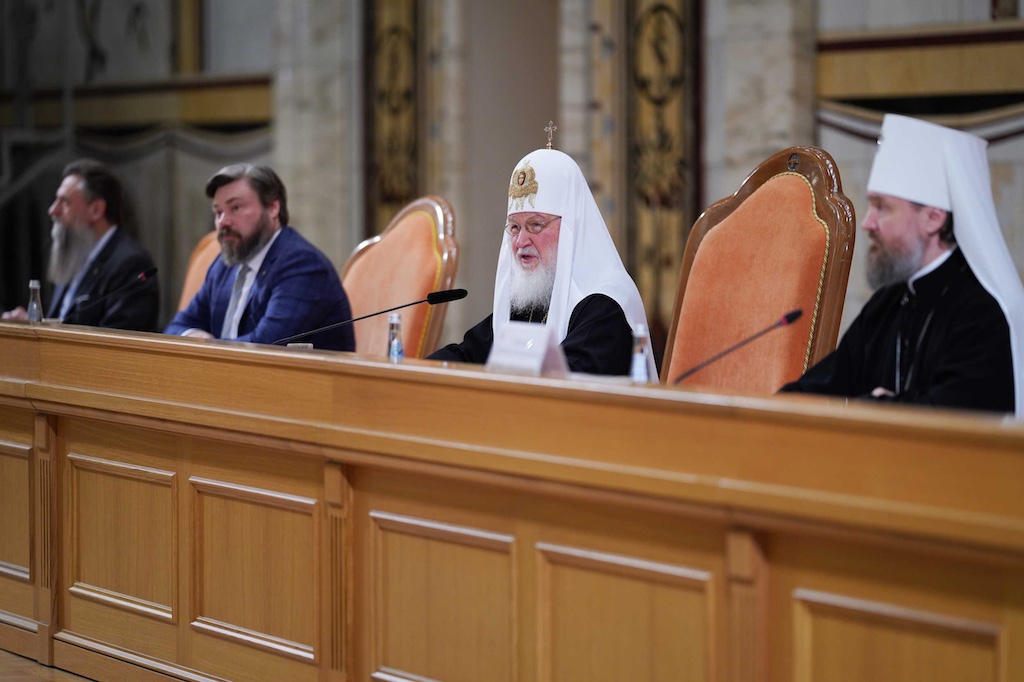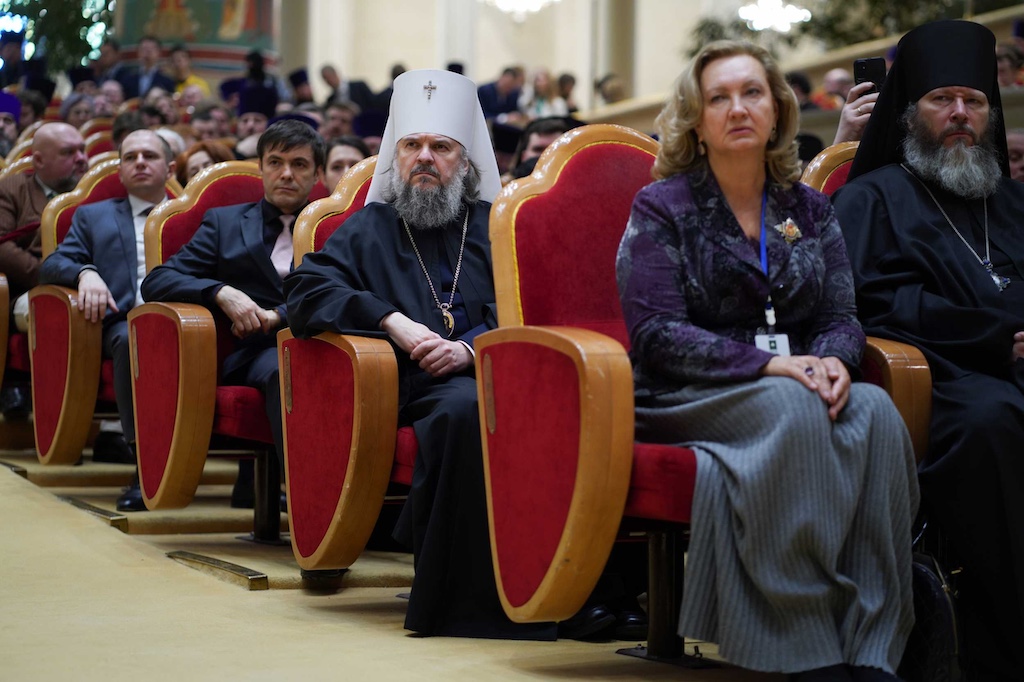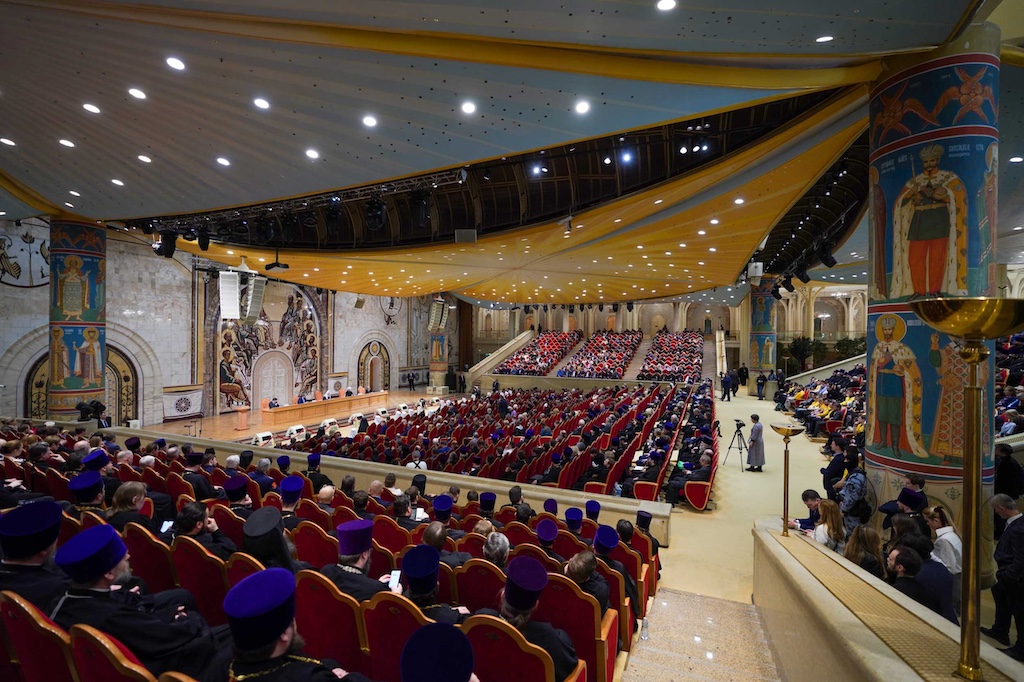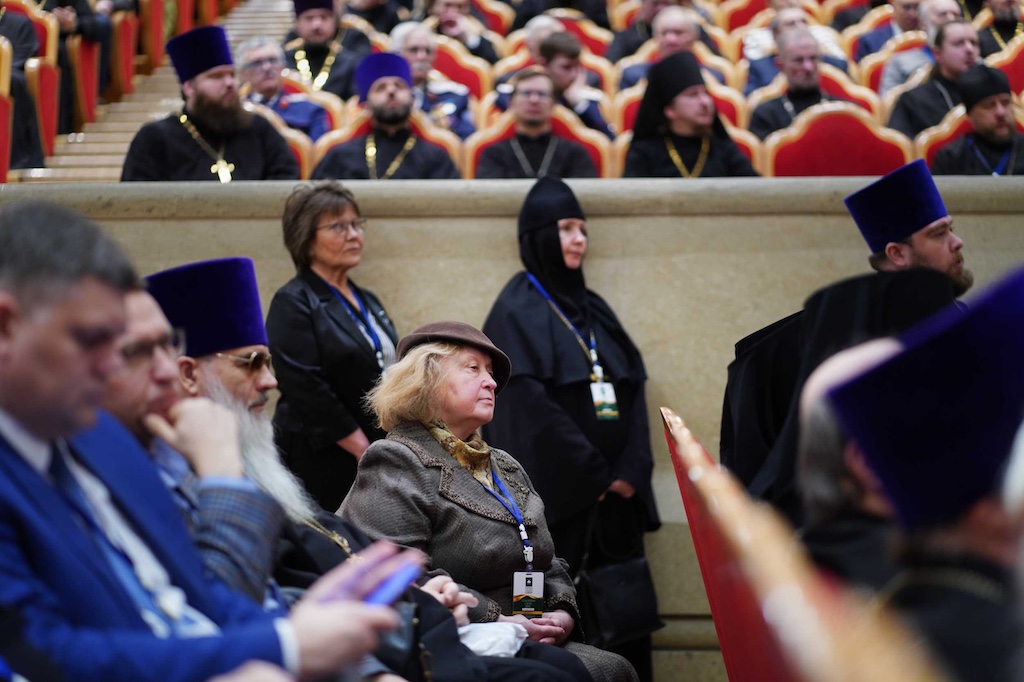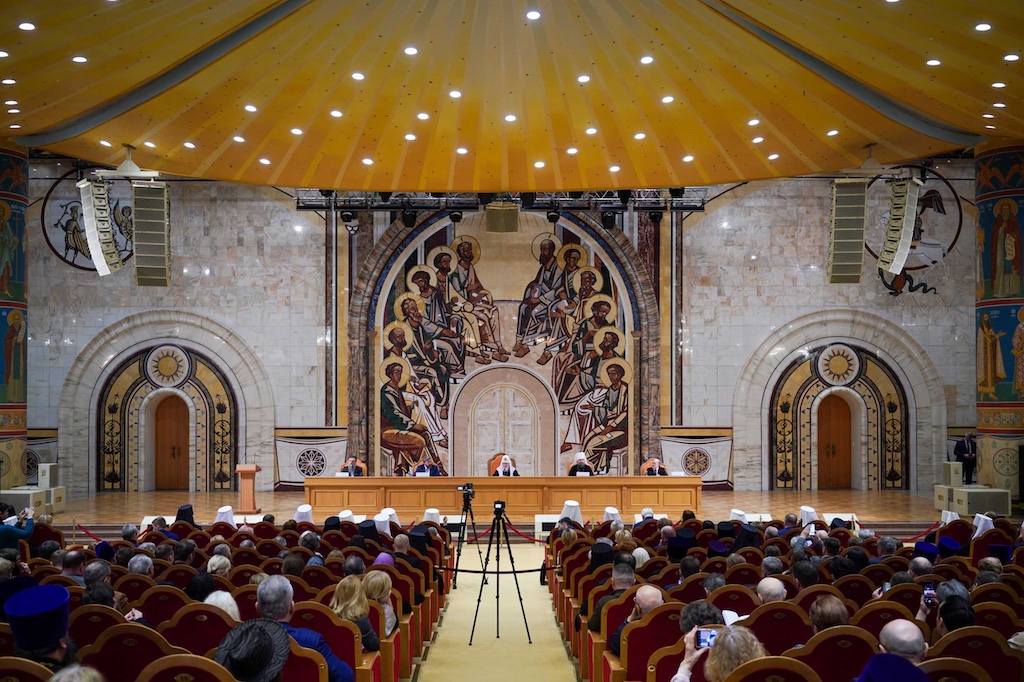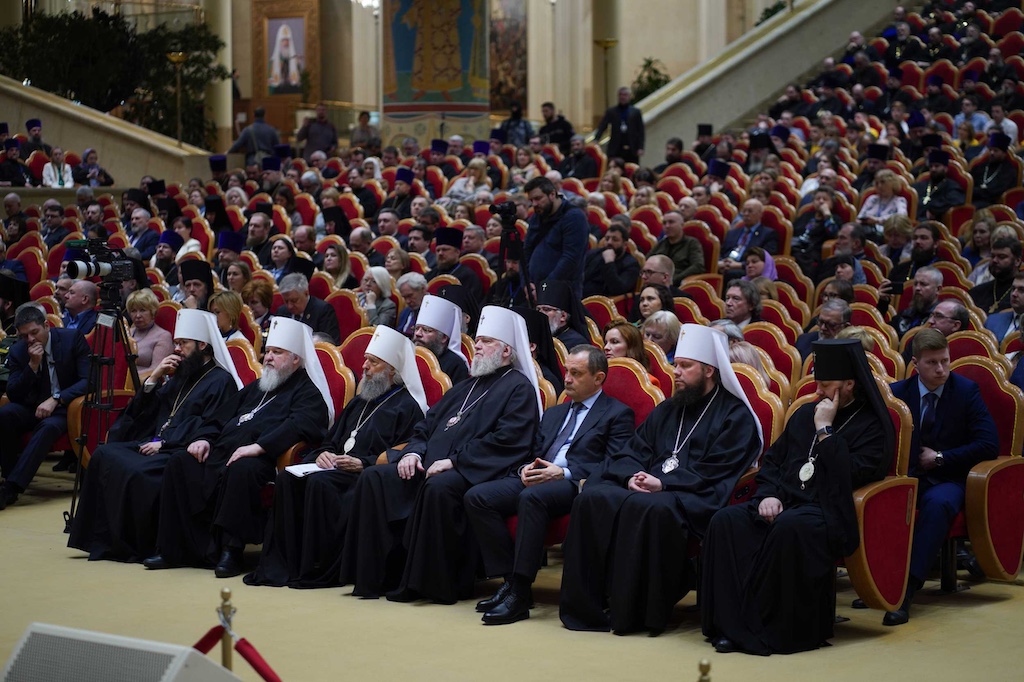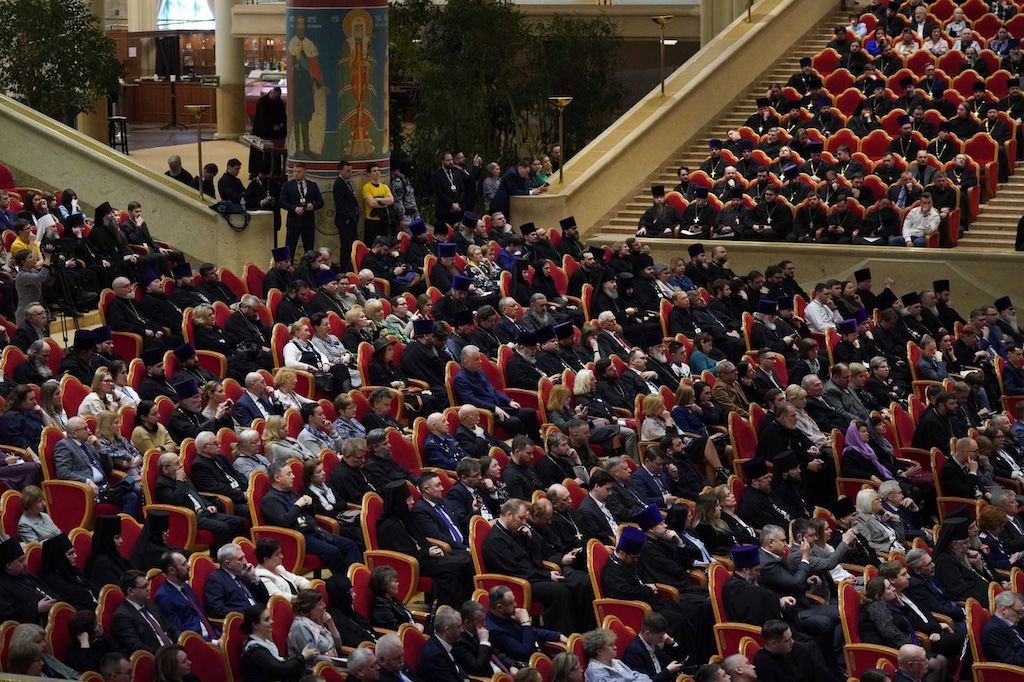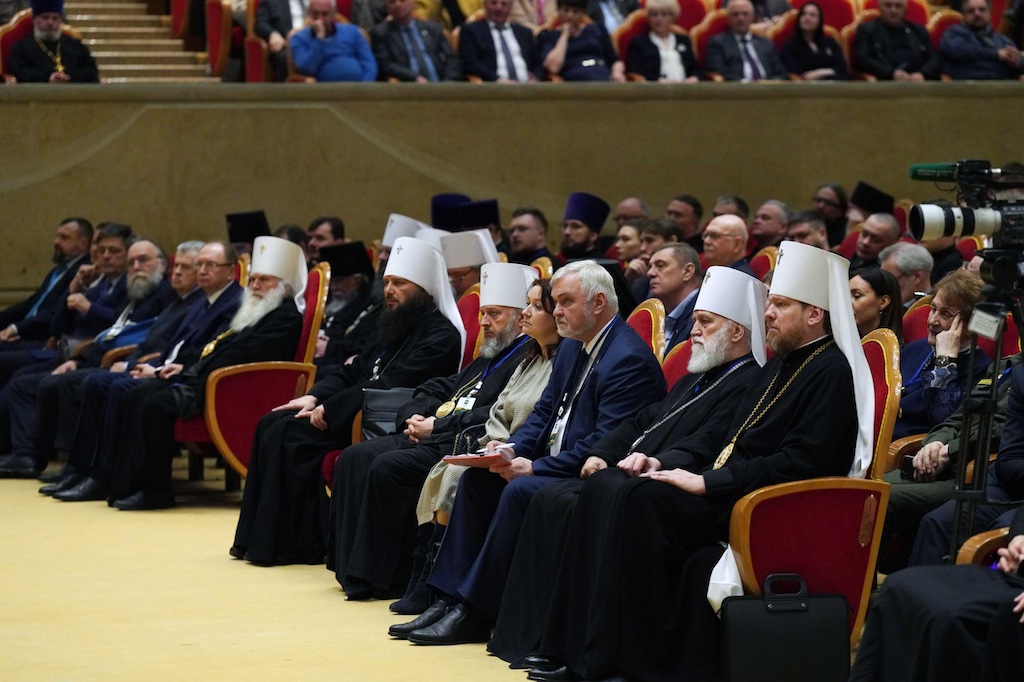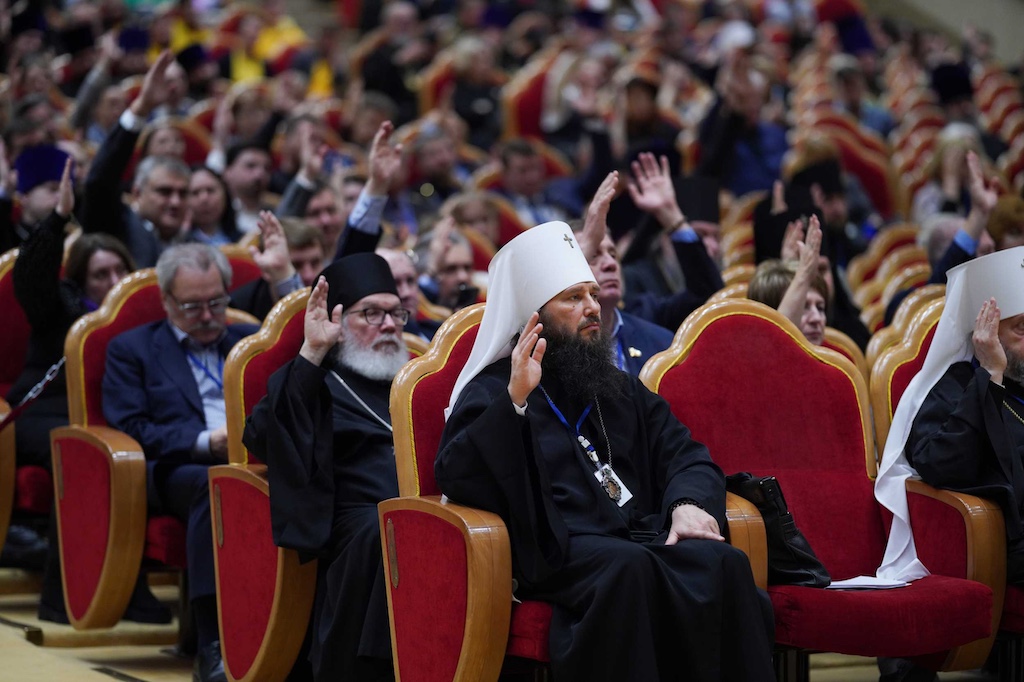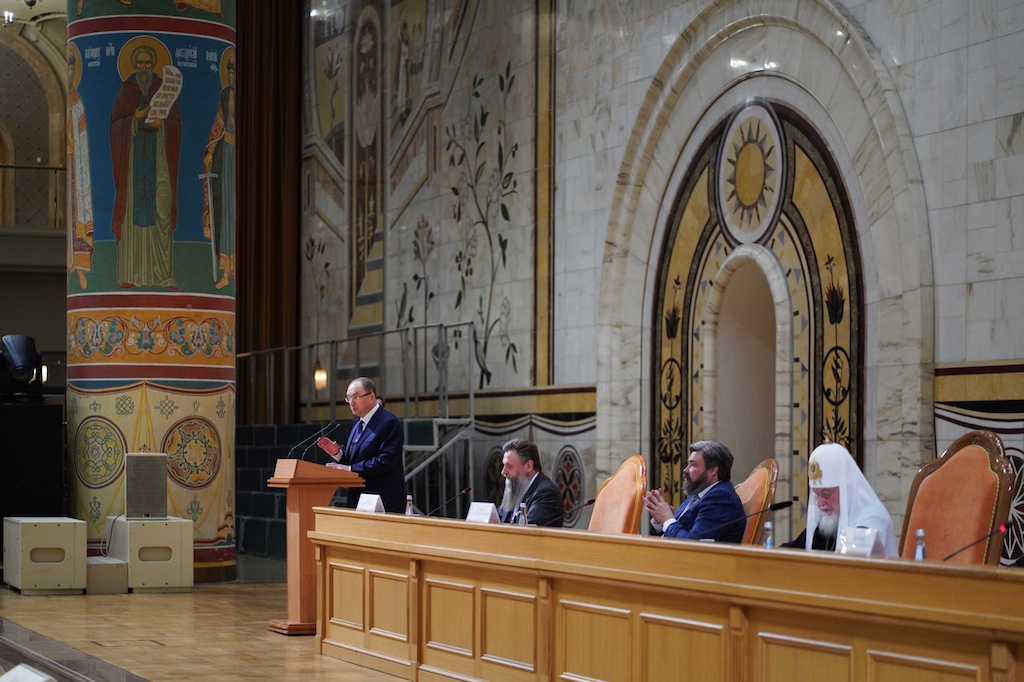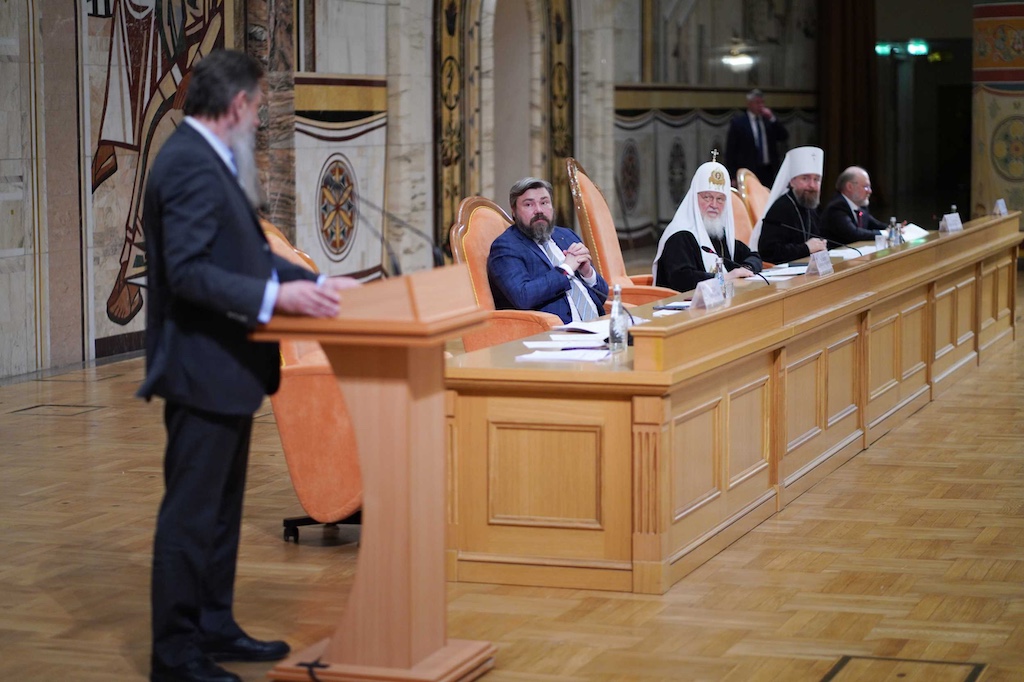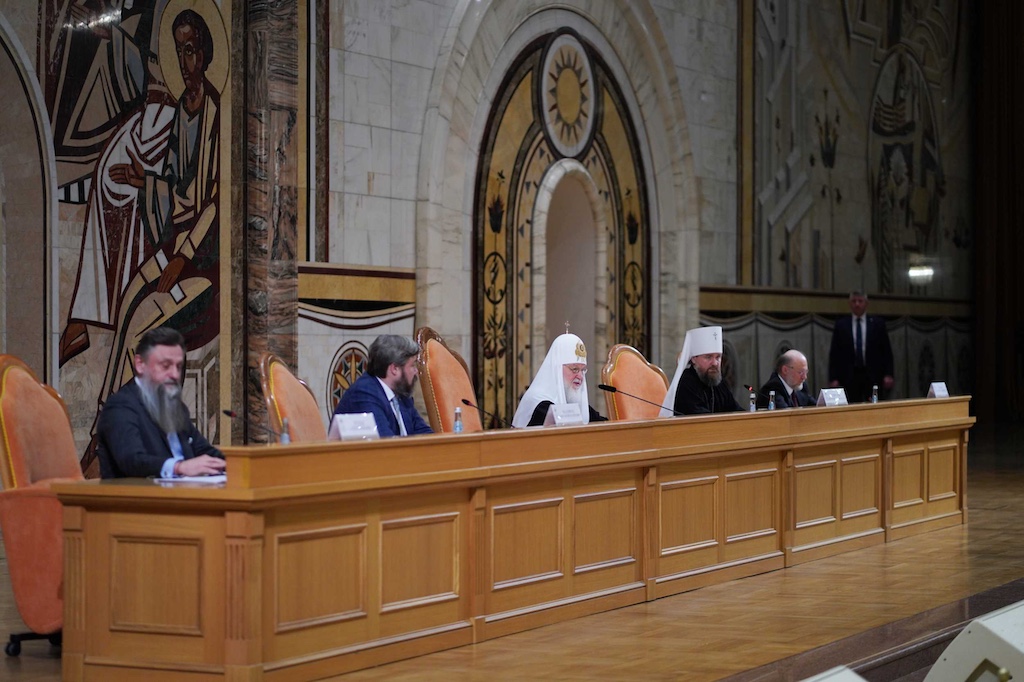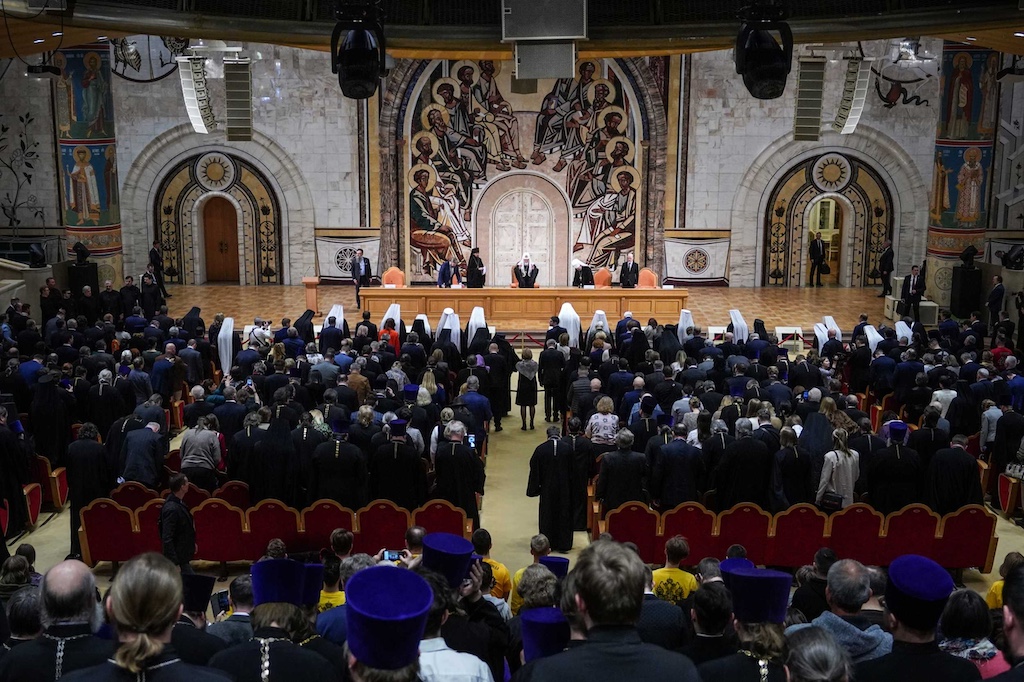by Efi Efthimiou
In a real treasure trove of insight, the Russian Orthodox Church unveils its true role, serving as a steadfast pillar of support for the Kremlin’s ambitions on the global stage.
During the meeting of the “World Russian People’s Council,” chaired by Patriarch Kirill of Moscow, a resolute stance emerged, portraying Russia’s conflict with Ukraine as a “Holy War.” This sentiment was mirrored by a fervent belief in the rightful extension of Russian boundaries to encompass the entirety of present-day Ukraine, thus consolidating exclusive Russian influence over the region. The unequivocal alignment of the Moscow Patriarchate with Kremlin policies is evident and shows no indication of waning; rather, it appears to be intensifying.
This document was approved during the meeting which took place on March 27 under the chairmanship of Patriarch Kirill, and was posted on the official website of the Moscow Patriarchate.
We don’t know the consequences of the open and public adoption of these positions and views by the Russian Orthodox Church. However, we believe that it will be a good opportunity to assess the leaderships of the Autocephalous Orthodox Churches, especially those who have chosen to maintain a “neutral” stance, a pro-Russian attitude even, towards what is happening in the Orthodox world in recent years.
Now, following the unprecedented escalation attempted by the Moscow Patriarchate with this document, invoking ignorance about Kirill’s intentions, which contradict Christian Orthodox teaching, will be difficult, as faith is exploited to justify political expediencies.
Insights from the Document Approved at the Meeting of the ‘World Russian People’s Council”
The document itself, reminiscent of a political “regime” manifesto of the previous century, explains in the clearest way the concept of the Russian World (Russkiy Mir) as well as Russia’s aspirations towards the West. It is really mind-blowing what is described in the text below:
“The document, encapsulating key proposals from expert platforms and the plenary session, serves as both a programmatic blueprint and a mandate directed towards Russia’s legislative and executive bodies,” it asserted.
In the text, it is emphasized that the war in Ukraine (“special military operation” as it is called), “is a stage in the national liberation struggle of the Russian people against the criminal regime in Kyiv and in the West, which backs it, and has been taking place in the territories of Southwest Russia since 2014. During this operation, the Russian people, with weapons in hand, defend their life, freedom, statehood, cultural, religious, national and cultural identity, as well as the right to live on their own land, within the borders of a single Russian state.
From a spiritual moral point of view, a special military operation is a Holy War, in which Russia and its people, defending the unified spiritual space of Holy Russia, fulfill the mission, protecting the world from the onslaught of globalization and the victory of the West, associated with Satanism. After the conclusion of the special operation, the entire territory of modern Ukraine will fall within Russia’s sphere of exclusive influence. The possibility of a Russophobic political regime in this territory, hostile to Russia and its people, as well as a political regime controlled by an external power hostile to Russia, must be completely ruled out.”
Then, an elaboration is provided on their aspirations for achieving dominance through the concept of the “Russian world.” It is underlined that “Russia is the creator, supporter and defender of the Russian world. The borders of the Russian world as a spiritual, cultural and cultural hub are significantly wider than the state borders of both today’s Russian Federation and wider Russia. Along with its representatives around the world, the Russian World includes all those who consider that the Russian tradition and culture are the highest values and the true meaning of life.”
The document acknowledges that the primary threat to the “existence and development of Russia” is the demographic crisis facing the country. Solving this problem is impossible without reviving the traditional large family in Russia as well as traditional family values.”
It also proposes measures that can be taken to encourage couples to have a third and fourth child. “One of these measures could be the partial or total cancellation of the debt of a home loan of a family (for example, after the birth of a third child 50% of the debt should be written off, a fourth child 75% of the debt and a fifth child should be written off altogether),” the document said.
He advocates for the establishment of a long-term strategic objective for the Russian state to increase the country’s population to 600 million people. He also stresses that “the attitude of Russian society towards abortion must be radically changed. It read: “The justification for the deliberate termination of pregnancy leading to a real epidemic of abortion must end.”
Regarding immigration policy, the text posted on the website of the Russian Orthodox Church points out that the massive influx of immigrants who do not speak Russian and do not properly understand Russian history and culture and are therefore unable to integrate into Russian society, is changing the image of Russian cities, which leads to the “deformation” of the country.
“In larger cities, closed ethnic enclaves are emerging and actively developing, which lay the foundation for corruption, organized crime and illegal migration,” it said. Furthermore, the text suggests that Russia must implement amendments to its immigration policy for the period 2019-2025, along with more robust legislation governing citizenship issues and the protection of the rights and interests of Russian citizens.
A key aspect of Russia’s revised migration policy should prioritize the implementation of robust controls, efficient planning, and management of external migration flows. It should also focus on creating favorable conditions for the large-scale repatriation of compatriots to Russia, as well as facilitating the relocation of highly skilled foreign professionals who are loyal to Russia and willing to undergo linguistic and cultural integration.
Similar are the views and proposals for the educational system of the country but also for the “upbringing” of children. Essentially, the document suggests that “upbringing programs and educational initiatives need to be purged of detrimental ideological concepts and behaviors, particularly those of Western origin, which are alien to the Russian populace and detrimental to Russian society.”
A special reference is made to the need for the development of the region, “through the mass relocation of city dwellers to comfortable suburban settlements. Also, the text read: “A change in the development priorities of the domestic construction industry is needed. The main objective of the new state policy for regional development, as well as the development of the construction industry, should be to ensure the sustainable natural development of the Russian population, achieved through high birth rates.”
According to the plan described in the document approved by the plenary of the meeting chaired by the Patriarch of Moscow, “by 2050, Russia must be transformed into a uniformly inhabited country with 1000 formed medium-sized and small cities. Suburban settlements should become the main type of settlements in the country. 80% of the Russian population (or more than 30 million families) will have to live in their own homes, on their own land. The text concluded by stating, “Life on your homeland, within environmentally favorable and comfortable surroundings, in your own cozy abode where you can start a family, nurture children, and raise three or more offspring, should epitomize the tangible manifestation of the ideals of the Russian World.”
Photo: foto.patriarchia.ru
